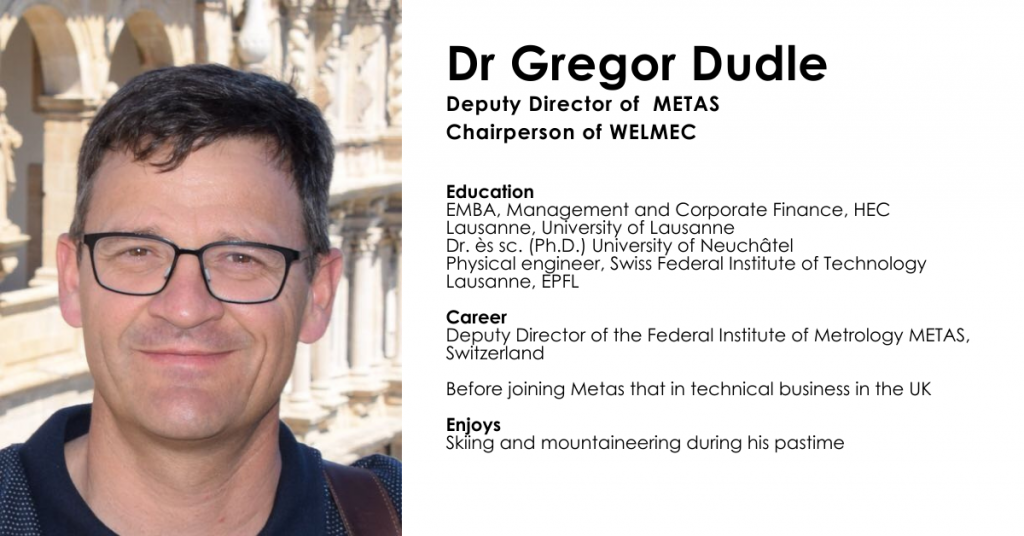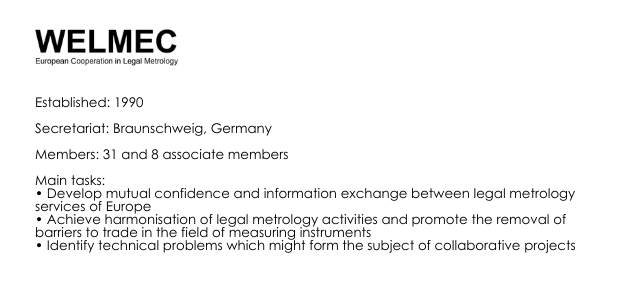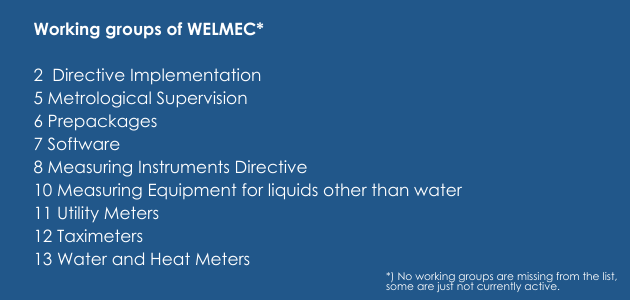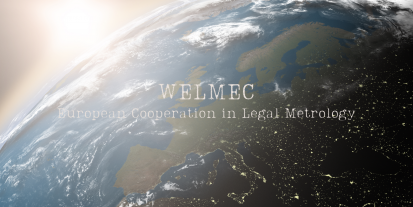This article deals with legal metrology in Europe and the technical force behind it – WELMEC. Ontec had the thrilling opportunity to interview one of the leading European expert in the field, Dr Gregor Dudle, the Chairperson of WELMEC and the Deputy Director of METAS, the Swiss Federal Institute of Metrology.
This is the third article in the series of articles, discussing Legal Metrology organisations, experts and legislation in global, European and Nordic context from a viewpoint of a company such as Ontec.

WELMEC
It probably does not come as a surprise that the letter of understanding for establishing WELMEC and harmonising European legal metrology was established in Switzerland, famous for its love of order and accuracy
Members of WELMEC are national authorities responsible for legal metrology in their own country (not countries). Dr Gregor Dudle, the Chairman of WELMEC, tells there are in total 31 members and 8 associate members in WELMEC. Geographically, these countries cover in practice the whole of Europe. WELMEC is entirely funded by membership fees.
WELMEC operates in a maximum cost-effective way: members choose on which topics they will want to work on, take part in only such work and pay for their own experts to do the work. This means all workgroups are dedicated to getting the best technical solution as fast as possible.
WELMEC is open to cooperate with umbrella organisations of measuring instruments manufacturers. Such associations can have the status of observer organisations and participate in the work of the Working Groups of WELMEC. These associations can voice their concerns and bring up their viewpoint but have no say in decision-making.
“European trade associations”, says Dr Dudle, “such as CECIP (European manufacturers of weighing instruments), CECOD (European manufacturers of petroleum measuring and distributing equipment) and Aqua (Association of Water and Heat Meter Manufacturers) are our good partners. They are needed, as they possess vital information on where the technology is headed and what issues we have to clarify in our Technical Guides. However, an individual company never takes part in our work. When companies participate, they participate as an industry. But let’s not forget that we also work with many public organisations that deal with legal metrology, such as OIML. This is done to exchange information and to make sure, no overlapping happens.”
New beginnings
Chairperson of WELMEC Dr Gregor Dudle has been participating in WELMEC’s work since early 2009 and has acted as its Chairperson since 2015.
The most visible part of Dr Dudle’s term has been the transformation of loose cooperation into a legal entity with more structure. Basic practical issues, even such as hiring employees and opening bank account have been challenging or impossible due to not having a legal form. “Since 18.3.2020 WELMEC became an association under German law and it is actually a significant change for us. It will make things easier in the future and give us new opportunities”, Dr Dudle tells us happily.
“Mostly,” Dr Dudle says, “my role in WELMEC is an administrative one. I initiate, oversee and follow up the technical work done by the technical experts. Being the Chairperson of Welmec is my “second job”. My actual work is connected to Swiss Federal Institute of Metrology METAS, where I work as the Deputy Director”. Dr Dudle’s term as a Chairperson is drawing to its end, his participation in WELMEC work is bound to continue.

Tasks
“Our goal is to develop and maintain effective cooperation to achieve a harmonised and consistent approach to legal metrology”, says Dr Dudle. “The practical technical work is done in our working groups. The most important part of the work of these groups is producing technical Guides. Technology develops so fast that we find ourselves in a constant need to update and revise technical guides of WELMEC.”
“Users of these guides are authorities and companies producing measuring instruments or systems. They often need detailed technical guidance on how to interpret European directives, such as the MID,” tells Dr Dudle.
WELMEC and Brexit
As to how Brexit will affect legal metrology cooperation in Europe, Dr Dudle has a clear answer: “Many of our members are members of the European Union and many are not. Our cooperation is excellent with all of them. We are technical experts and work on resolving technical issues. WELMEC does not get involved in politics. Cooperation with our British colleagues will go on as usual, regardless of Brexit. WELMEC will continue to serve as a bridge between different European organisations and experts.”
WELMEC and EU
“The European Union and WELMEC need to cooperate on a very practical level. This is to keep the interpretation of certain important directives the same everywhere in Europe. Our goal is to prevent technical barriers stopping free trade – just like the EU. As a matter of fact, if I would need to point out the two greatest workloads WELMEC has had, then they would be two directives of EU – MID and NAWI [Measuring Instruments Directive 32/2014/EU and Non-automatic weighing instruments Directive 2014/31/EU]“, explains Dr Dudle. “WELMEC was of great significance in the preparation of MID and still is in the interpretation of it, via our Guides.”
Future
“In my eyes, WELMEC continues to play an important role in the landscape of legal metrology in Europe. Elaboration of the common interpretation of existing EU regulation will continue to be the main pillar of WELMEC’s work”, states Dr Dudle. “WELMEC will have plenty to do in the near future, preparing the future with revision of MID, other fields of regulations, e.g. in relation to the Green Deal and so on. This will become increasingly important. I see also potential in fields where regulation is not harmonised. With the new legal entity in place, we have laid a good foundation for addressing such questions.”
More Dr Dudle is convinced WELMEC needs more and deeper partnerships going forward: “A very important point for the future of WELMEC will also be the collaboration with our sister organisation EURAMET. I am convinced that it will be beneficial to the metrology communities if EURAMET and WELMEC continue to collaborate. This work has already been started.”

Last but not least
In our last article on legal metrology, we will focus on the role of the European Union with the guidance of Policy Coordinator of Legal Metrology, Zsuzsanna Dákai.


